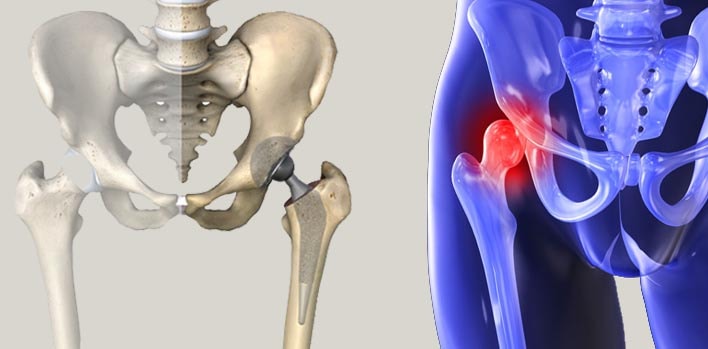Considerations After Hip Prosthesis Surgery
Monday, July 31, 2017 | Healthy lifestyle
After the patient is taken to the operating room, the time to return to bed is longer than expected. This includes the preparation of the pre-operative patient, and the control of the patient until the patient arrives after the operation. Patients with general condition problems are kept in intensive care for a while. The patient whose vital functions are stable is taken to bed.
First day; There is a painful picture of surgery for 4-6 hours. With painkillers and morphine-like medications, the patient is provided with minimal pain. If necessary, pain is controlled by patient controlled pain pump. After the patient is awake, foot-leg pump exercises are started to ensure regular blood flow in the leg veins. After 4-6 hours, the liquid and solid foods are provided as control. The urine probe that is inserted into the patient's operating room is kept until the patient goes to the toilet on his own. The drain placed in the operating area is removed at the end of 24-36 hours.
Apart from specific problems related to the patient's health condition, antibiotics are given to prevent illness, pain killers, blood thinners and infection.
Painkillers are given according to the condition of the pain, may not be used without pain.
Antibiotics are usually used for 2 or 3 days. This may take longer in risky situations. However, blood thinners are generally used for 35-40 days.
1.Day
The next day, when the surgery is performed, the patient is given hip, knee and ankle exercises with physiotherapist co-operation. According to the general condition of the patient; Sitting and standing are taught. The first walk is provided with the help of a walker. An X-ray is taken to evaluate the operation.
How a traks to follows after surgery
From 2nd day, the amount and duration of walking is increased. It is provided with a walker at the beginning and then with a single or double armrest. This depends on the health of the patient, muscle strength and age. It is taught that the patient is sitting, lying down, standing up and leaving the toilet. Exercises to go up and down the stairs and to do at home are shown before departure from the hospital. Patients are usually kept in the hospital for 3-5 days. It is recommended to take a wound dressing every 2 days after the patient is discharged, and then to remove the sutures after 2 weeks. The amount of walking, standing, walking is increased according to the condition of the patient. It usually takes 7-14 days to walk from the double seat cushion, with the single seat knob with elbow support. Unsupported walking is recommended for 3 or 4 weeks.
Patients with hip prosthesis do not have any food restrictions. Bathing, protection of the surgical area is possible by recording, by starting to walk.
The movements that patients should not do after total hip arthroplasty surgery may vary according to the findings of each patient in the operation. As a general rule, however, it is forbidden to throw on the leg-leg, to sit on the legs and to sit and crouch. It is generally not allowed to lie on the operated side for 4-6 months. During lying down, pillows can be placed between the legs for 6-8 weeks.
Next period
After these surgeries, a painless hip joint is usually obtained. The limping and gait disturbance is negligible according to the pre-operative period, although it varies according to the pre-operative time and hip movement rates. It usually provides a more casual everyday life without pain and without limp.
Control at the first month, After 3. And 6. months, if there are no problems after the check in months, they are usually called for control once a year. Patients are warned against pain, infection or other problems. It is suggested to come to the control without waiting when the findings are thought to be related to these problems.
Today hip prostheses last 20-30 years. The weight of the patient affects the durability of the daily life style prosthesis. For this reason, a quiet life is recommended.
The explanation of what will happen after the operation and the patient's comparison with the now living help the patient to decide the operation. However, the operation decision belongs to the patient. The family and relatives help the patient in this decision. According to the patient's expectation from the operation, the patient is not operated without being convinced of the operation.
Hip prosthesis surgeries depending on specific problems such as hip replacement surgery due to hip fractures and hip joint disruption on the hip protruding base may show differences according to the above.












